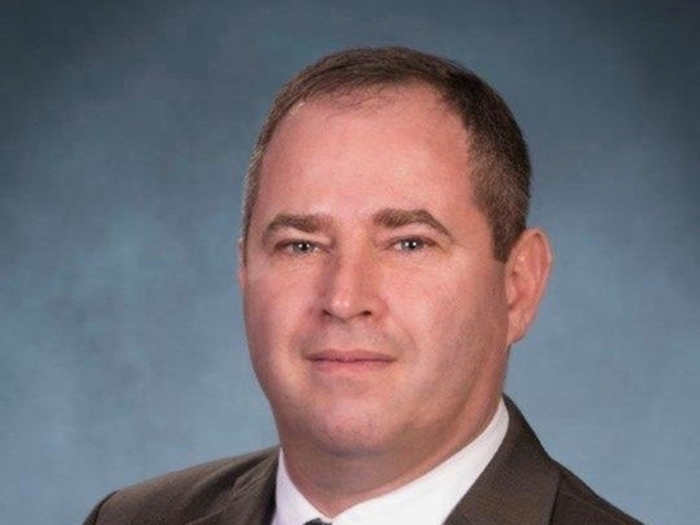81% of Companies Believe in DEI, but Only a Fraction Act on It — Where’s the Disconnect?
In the past two years, we’ve seen a shift from organizations maintaining a diversity, equity and inclusion (DEI) program toward a desire to live and breathe DEI in all that they do. But is this really happening, and is this movement leading to truly authentic and effective action?
The short answer for most of us is that we are not there yet, but we are making great progress.
Let’s consider the authenticity and effectiveness of the work that has been done and how we continue that momentum.
Reflecting On Society’s Progress
From an individual standpoint, the social justice movement inspired and encouraged individuals to better inform themselves and donate their time and money to organizations that support this important work.
Similarly, organizations — including many across the insurance industry — did a deep dive in assessing their current diversity and inclusion (D&I) programs and took steps to make the workplace more equitable, such as officially adding the “E” for “equity”; some even added a “B” for “belonging” to their programs.
Employers put new systems in place to enable people to connect, understand and support each other. They recruited talent from new areas, looking for new perspectives and different ideas. And they donated. They donated money to organizations chosen by employees, they donated time through organization-wide volunteer days and they donated resources to those in need.
These commitments are a step in the right direction. They started conversations and prompted leaders to look for talent that would add to their cultures, not just fit in.
However, making commitments is not always enough. Without accountability and proven results, momentum will come to a halt and progress will regress. In fact, according to Human Resources Director magazine, while 81% of companies believe that DEI initiatives are beneficial, only 34% have the resources to support their initiatives and only 49% have a strategic diversity plan in place.
So how do we keep up the momentum?
Momentum in the Insurance Industry
In recent years, the insurance industry has stepped up its focus on DEI and taken more action. Though more work is needed, there is much to commend as well.
The Insurance Industry Charitable Foundation (IICF) played a large role in the progress I experienced over the past few years. In bringing together organizations from across the industry, IICF helps us come together to collaborate and share practices to benefit the insurance industry.
Committees such as the IICF IDEA Council have borne fruitful programs and useful resources.
One such program is the IICF Talent Hub, which was created to help job-seekers learn about careers in insurance. IICF is also using that tool to highlight the amazing work of others in our industry. IICF recently posted an apprenticeship webinar hosted by IICF, AIG, Aon and Zurich on its Talent Hub.
Not only did the webinar provide information and opportunities for job-seekers throughout the industry, it also showcased the work that AIG, Aon and Zurich have done over the years to establish their apprenticeship programs, laying a solid foundation for other organizations to follow.
Another industry resource elevated by the IICF IDEA Council is the IICF Mentoring Alliance, which will prepare, inspire and empower diverse talent by pairing them with role models and allies from leading companies across the industry. Munich Re recently submitted a significant number of protégés and mentors for the pilot program.
Such progress within the industry can also be seen in the way leaders speak about DEI. At industry conferences such as the IICF Inclusion in Insurance Regional Forums this past summer, leaders demonstrated their commitments to DEI, accessibility, wellness, environmental social governance and more — and inspired others.
The industry has accomplished so much over the past several years, and in collaborating with each other, we have been able to share that work, create new ideas and grow DEI within our own individual businesses and across the industry.
Making Change at Munich Re
What is promising about the insurance industry is that, while we continue to work diligently to close the inequity gap, we are recognizing a growing desire to do more. As we look to further collaborate as an industry to advance DEI, I’d like to share a few initiatives we are doing at Munich Re.
Munich Re’s long-standing programs have built a foundation on which the work of today continues. With the goals and milestones built into our DEI commitment, we’ve been able to monitor and track them over the years and truly build upon our progress.
One such goal is Munich Re’s commitment to promoting women in the workforce. According to McKinsey and Company’s 2021 Women in the Workforce study, women make up 48% of entry-level workers; that number drops to 24% when looking at people in C-suite positions.
To ease this disparity in the insurance industry, Munich Re made a commitment to increase the proportion of women in management roles globally and group-wide by the end of 2025. While we have been dedicated to women and gender equity for a long time, this commitment sets a specific goal, enabling us to track progress and momentum. As of today, we are well on our way to meeting those goals and have been able to build upon them, including the fact that all three of the external Munich Reinsurance America Inc. board of directors positions are currently held by women.
Another area in which Munich Re is working to accelerate and support DEI is in the talent space.
Munich Re has turned inward with our Accelerated Development Leadership Programs. Initiatives like our Oxygen and Hydrogen programs enable Munich Re to focus on the middle levels of the organization by giving individuals the opportunity to work on stretch assignments and have additional access to leaders in the C-Suite and on the board.
We encourage many of these aspiring and potential leaders to join the programs through self-nomination. However, there are other opportunities to join the programs through conversations with leaders and networking done in employee resource groups (ERGs), as well as other committees.
Though creating and supporting opportunities for growth within the company enables Munich Re to build equity and inclusiveness, we also look to bring diverse new talent into the organization and industry. Our Dare to Dream project works with middle- and high-school students to get them excited about insurance early on in their academic careers. We currently work with students in the Chicago area but plan to expand the program over the next few years to other key markets.
While we have made strides as an industry in terms of DEI over the past few years, the way forward will not be without its challenges. Taking the time to really understand the issues and disparities can help go a long way in supporting and advancing DEI.
Getting your team members to open their eyes and embrace DEI initiatives and resources will help you to move your company forward, and to build and sustain momentum. The key to truly becoming an actionable and sustainable DEI program lies within accountability, measurability and authenticity. &










